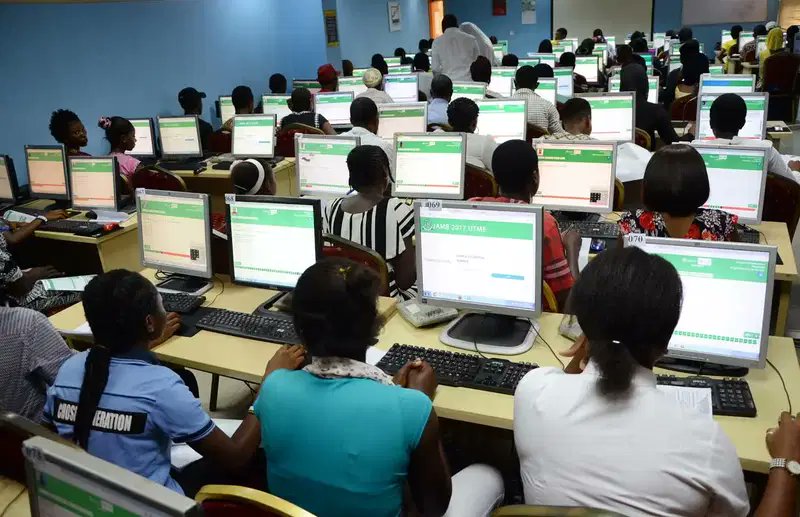The release of the 2025 Unified Tertiary Matriculation Examination (UTME) results has sparked nationwide alarm and intense debate, especially across social media platforms like X. Conducted by the Joint Admissions and Matriculation Board (JAMB), the UTME is the gateway to higher education for millions of young Nigerians. But this year’s results have revealed deep cracks in the foundation of Nigeria’s education system.
Of the nearly 1.95 million candidates who sat for the exam, more than 1.5 million scored below 200 out of 400—meaning just 22.13% managed to cross that mark. Education experts and worried citizens have called the numbers “embarrassing” and “a national red flag.”
The Numbers Don’t Lie
Held from April 24, the 2025 UTME saw almost two million students vying for limited admission slots in universities, polytechnics, and colleges. When the results dropped in early May, the data was grim. Scoring 200 and above is widely seen as the baseline for competitive admission, yet over 75% of students failed to meet it.
The poor performance has raised uncomfortable questions about the quality of secondary education in the country. One user on X summed it up bluntly: “1.5 million scored below 200. This is not just bad—it’s a crisis.”
What’s Behind the Poor Performance?
Several factors are being blamed. At the forefront is the deteriorating state of public secondary schools. Many suffer from a lack of qualified teachers, outdated teaching materials, and poor infrastructure. While private schools often offer better learning conditions, they remain out of reach for most families.
Preparation—or lack thereof—is another major issue. The UTME tests candidates on subjects like English, Mathematics, and course-specific electives, but many students don’t have access to quality textbooks, study centers, or reliable internet for online resources. Teaching methods in many schools still lean heavily on rote memorization instead of critical thinking and problem-solving.
There’s also growing concern about the impact of digital distractions. As one commenter on X noted, “Our kids spend more time on TikTok than they do with their books.” While technology has the potential to enhance learning, its misuse is clearly a factor in declining academic discipline.
On top of all that, technical and logistical problems plagued the exam process for some students—issues like system glitches, delays, and biometric failures. For first-time test-takers under immense pressure, these disruptions can be devastating.
A Call for Urgent Reform
The widespread disappointment over the UTME results has reignited calls for systemic change. Education advocates are demanding that the government declare an emergency in the education sector. Suggested reforms include increased funding for public schools, regular teacher training, and modernized learning tools and curricula.
JAMB hasn’t escaped criticism either. Some argue that the exam’s structure doesn’t truly reflect students’ capabilities. Others believe JAMB’s efforts to reduce cheating and improve transparency have simply exposed the real state of learning in Nigeria. Either way, the consensus is that the exam results are just a symptom of a much larger problem.
The Human Cost
Beyond the statistics are real students with real dreams—many of which now hang by a thread. Scoring below 200 often means no admission into preferred institutions or courses, and for many families, it’s a heartbreaking outcome after months or even years of sacrifice.
Online, the emotional toll is clear. One student shared, “I studied so hard and got 180. What now?” These stories highlight just how high the stakes are and the urgent need for support systems—like academic counseling and alternative admission pathways—for students who fall short.
What Lies Ahead
This year’s UTME results have forced Nigeria to confront the deep-rooted issues in its education system. The national conversation now trending on social media reflects the urgency of the moment. Yet, within this crisis lies a chance for meaningful change.
By investing in education, closing the gap between public and private schooling, and encouraging a culture of academic integrity and excellence, Nigeria can start rewriting its story. The goal isn’t just to improve UTME scores—it’s to build a system where every student has a fair shot at success.
For now, the focus must be on supporting the millions of students navigating the aftermath of these results. If Nigeria truly wants to build a brighter future, it starts with fixing its schools today.

